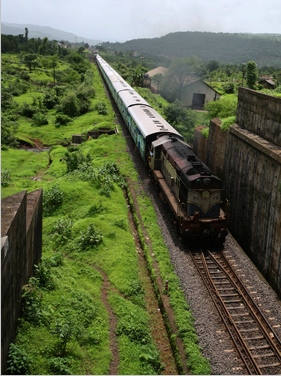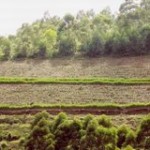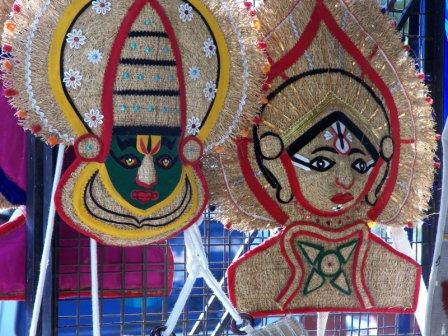Konkan railway has started to plant vetiver grass along its laterite slope to stop landsliding. Roots of vetiver grass grow at least 3 metres inside the soil and its fibrous nature bind and hold soil tightly. The roots have strength of 1/6 of mild steel (eco steel!).
The konkan railway region is one of the most scenically green belt in India. Konkan railway has been called a tech marvel for its difficult terrain, tunnels and sky bus project. It has added one more green feather to its cap. Vetiver grass is not only a green solution but it’s primary centre of origin is India.
It was long long ago when I was in school, I had seen ‘ khus ki tatti’ (vetiver roots screen) at my maternal uncle’s place. The screen was used for cooling (eco-manufacturers listening?) and it gave mild earthy aroma. I do not see vetiver roots screen anywhere now.
Among many uses vetiver grass is used for soil and water conservation. Vetiver grass is called ‘khas’ in Hindi and is used now mainly by itra (scent) manufacturers.
I have also rediscovered this-people’s-grass. Beautiful handicraft’s were used to be made from vetiver. These days I see cane and coir handicrafts but unfortunately not a vetiver grass handicraft.
I wish to revive vetiver grass craftmanship. Any artisan listening?








